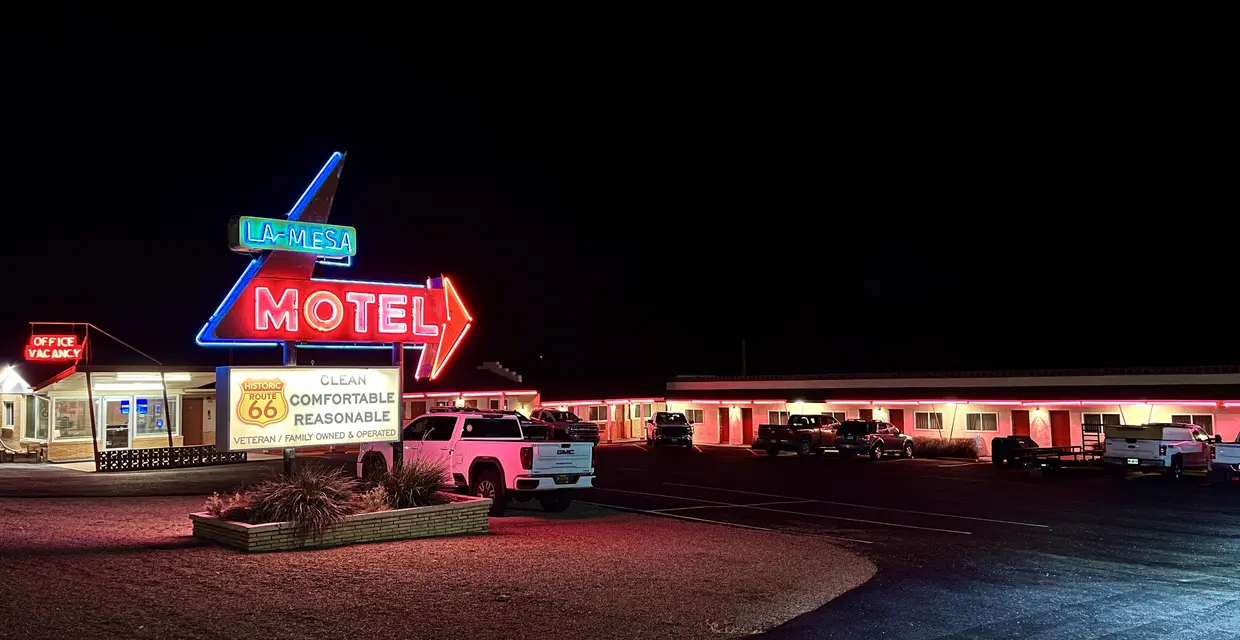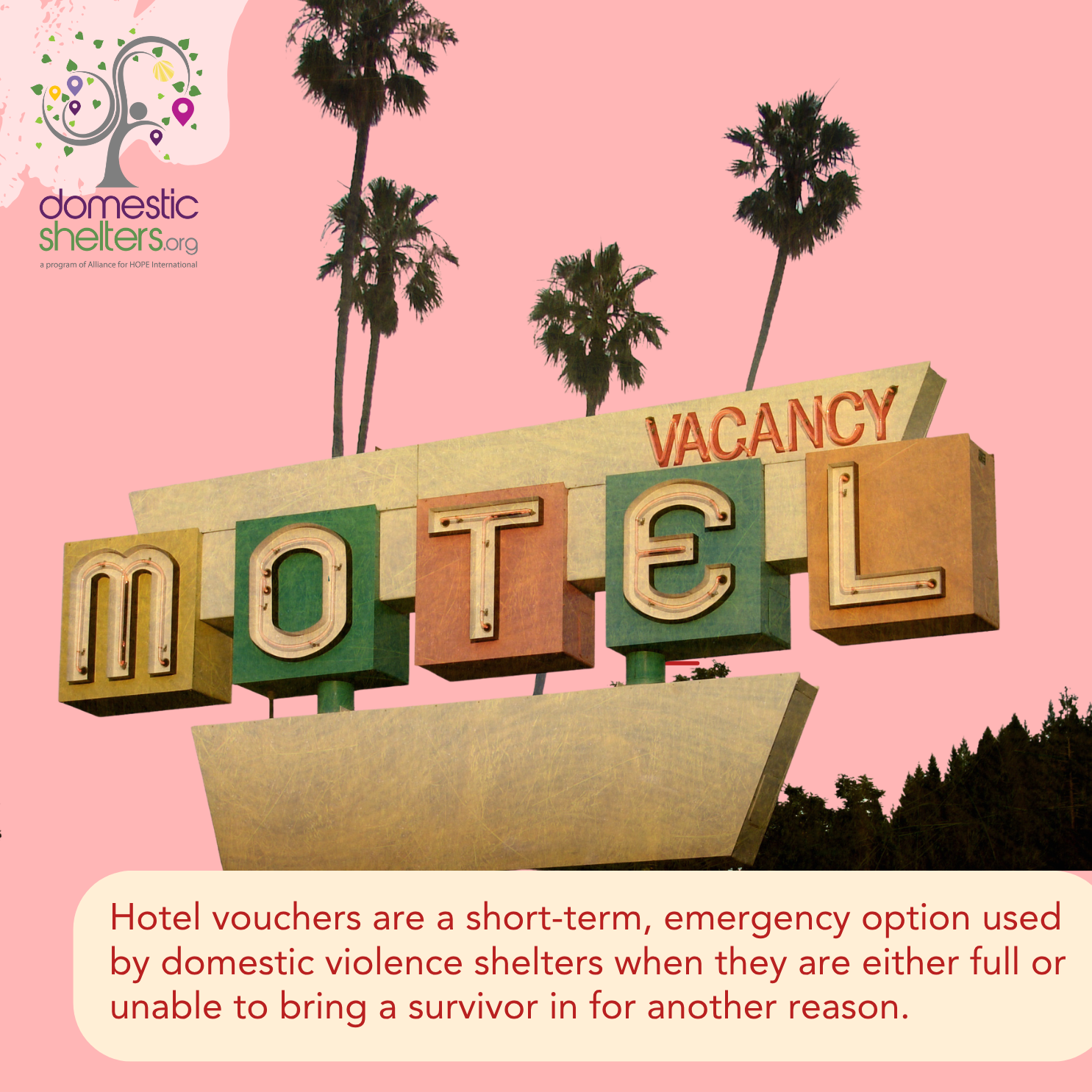1. Select a discrete app icon.

notes
When Shelters Reach Capacity, Hotels Become Lifelines
How to get a hotel voucher from your local domestic violence shelter
- Aug 04, 2025

Key Takeaways:
- Hotel vouchers offer a critical short-term safety option when domestic violence shelters are full—especially for survivors in high-risk situations or those with unique needs shelters can't accommodate.
- Though hotels are not ideal due to limited support and higher costs, shelters work to ensure safety and comfort, often involving police escorts and providing necessities to help survivors feel secure and plan next steps.
- Shelters depend heavily on donations to fund emergency hotel stays and provide essentials, making community support vital to keeping survivors safe and supported during crisis.
Sometimes, leaving an abusive partner happens in an instant. For the survivor, it’s a matter of life or death. In that scenario, going anywhere that the abuser may be able to find them can be highly risky. Turning to a neighbor, friend or nearby family member for temporary shelter may put not only the survivor at risk, but also the person who is housing them. (This isn’t to say you shouldn’t’ consider those places first; just see if you can find someone the abuser isn’t familiar with or doesn’t know where they live.)

This is where domestic violence shelters are of vital importance. They usually take survivors based on lethality risk—those most at risk of homicide take priority. This, combined with limited capacity (most shelters have fewer than 10 rooms) means they can fill up fast. After all, survivors everywhere are always in need of safe escape. So, what happens when survivors need shelter and there are no rooms available?
Hotel Vouchers Serve Multiple Types of Survivors
Hotel vouchers are a short-term, emergency option used by domestic violence shelters when they are either full or unable to bring a survivor in for another reason. They’re also helpful for:
- Survivors who may have children and need more than one bed
- Male survivors escaping abuse. Not all shelters have individual spaces for men where the female survivors also seeking shelter will feel safe.
- Survivors in rural areas where a domestic violence organization doesn’t have a shelter at all.
- Survivors with special needs that a shelter can’t accommodate, such as disabilities or pets.
- LGBTQ+ or nonbinary survivors who may face barriers to safety or inclusion in traditional shelter settings.
Survivors may request a hotel voucher from their local domestic violence organization, but shelters will likely only give out vouchers to those survivors with the most imminent risk. That means that if a survivor is in danger of violence or even homicide that day, the shelter will feel a more urgent need to get them to safety. If the survivor is being abused but considers themselves relatively safe to wait a day or two for room to open at the shelter, advocates may ask them to wait, or to go to a friend’s or family member’s house until room can open at the shelter. Most shelters simply do not have the budget to put all survivors up in hotels.
Are Hotels as Safe as Shelters?
Emma Lookabill is a crisis intervention advocate for Family Services of Davidson County in Lexington, N.C., a rural area. Their shelter has four rooms for either individuals or families. Even given their small space, they work to never turn a survivor away. If they’re full, they may help a client identify a friend or family member they can stay with and work with transportation options to get them to that family member acknowledging that, in many cases, “family members offer better support than we would be able to.”
In the cases where survivors might not have that supportive family member and the shelter is full, Lookabill says they do use hotel vouchers, even though, “shelter is always the number one option,” she says. Hotels are usually the last resort, partly because of the cost to the nonprofit, but also because survivors need that one-on-one connection with an advocate that they’re not getting at a hotel.
“We like to be available at all times. It helps to build rapport,” she says.
However, when necessary, they make sure survivors can get to a hotel in the safest way possible.
“Hotels know why our survivors are staying there. They know how our confidentiality works. We usually provide police escorts to the hotel to make sure no one is following.”
Similarly, instead of asking a survivor to drive to the shelter first, they will ask them to go to a police station where someone from the shelter can meet them.
“[Abusive partners] are less likely to continue following them because they’ve seen them walk into a police department.”
Once at the hotel, advocates make sure the survivor has whatever they need to feel comfortable—food, clothing or other basic necessities.
“Whatever they need we’re going to put it together for them,” she says.
Often times, just a night away from the abusive partner can do wonders to help the survivor feel safe enough to make clear decisions the next day. Do they want to leave permanently? File for an order of protection? Press charges? If anything, advocates make sure survivors always have a safety plan—an outline of what they will do to stay safe the next time an abusive incident occurs. After a night at a hotel, advocates will reassess with the survivor to see if she has somewhere else to go, or if she needs another night away.
Room May Open at the Shelter After a Hotel Stay
For some survivors, after staying at a hotel, space may open up at the shelter. Or, advocates may be able to find space at another domestic violence shelter in a nearby city, as long as it works out for the survivor logistically (i.e., it’s still close enough to work or school).
The benefits of going to a shelter are that the survivor can receive additional and constant support. Shelters are also very safe—they have policies and procedures in place to make sure abusers cannot locate a survivor in shelter. Many shelters also have resources such as support groups, counseling, job search help, transitional housing assistance, transportation vouchers, a clothing bank and a full kitchen. Some even provide childcare when the survivor needs to go to court or a job interview. Some shelters allow pets to stay on site with the survivor.
To learn more, read “The Support You Can Expect at a Shelter for Women & Children.”
Shelters Rely on Donations to Help Fund Hotels
Hotels can be a lifesaving option for survivors who need to get away from an abusive partner immediately. But they aren’t free, and most domestic violence organizations around the country are already stretched thin when it comes to funding.
“We rely so much on donations in our community because we have a very strict budget,” says Lookabill, who gladly accepts monetary or in-kind donations from the community. The latter can look like items survivors need when staying in shelter, like toiletries, bedding, clothing or toys for the children.
Many shelters have Wish Lists set up on DomesticShelters.org, including Lookabill’s organization, with common items found on Amazon.com that they’re in desperate need of. Your donation can make a huge difference in the safety and comfortability of survivors.
Donate and change a life
Your support gives hope and help to victims of domestic violence every day.






